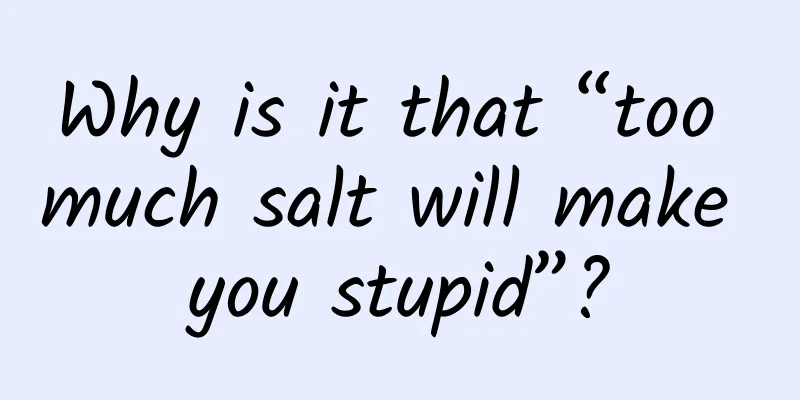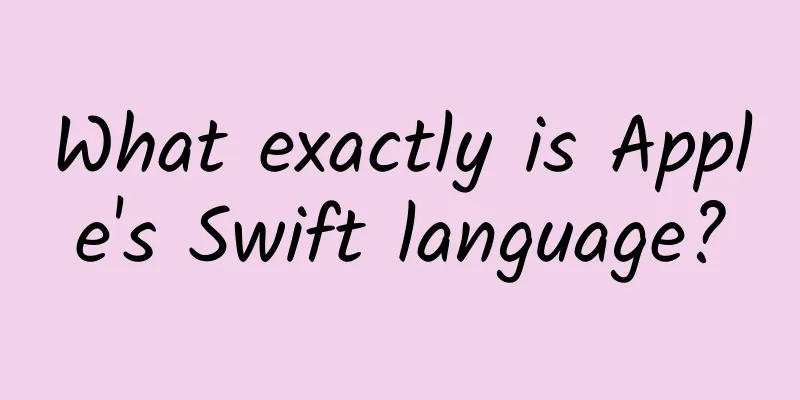Why is it that “too much salt will make you stupid”?

|
It is said that "salt" is the first of the five flavors. Without "salt", many dishes will be tasteless. Although salt can satisfy our appetite, excessive consumption will cause harm to the body. The "Dietary Guidelines for Chinese Residents (2022)" recommends that adults should not consume more than 5 g of salt per day , which is consistent with the recommended intake of the World Health Organization. The "Scientific Research Report on the Dietary Guidelines for Chinese Residents (2021)" mentioned that in 2002, 2012 and 2015, the average daily intake of salt for cooking in Chinese households was 12.0 g/day, 10.4 g/day and 9.3 g/day respectively . Although the salt intake has a clear downward trend, it is still 86% higher than the maximum recommended intake of 5 grams. Therefore, Chinese residents still need to work hard on controlling salt intake. The harm of excessive salt intake to the body is not limited to the well-known high blood pressure , but also increases the risk of fractures and even affects the cognitive function of the elderly . Next, let’s talk in detail about the dangers of excessive salt intake and give you some tips on how to control salt intake. Bad for cardiovascular health At present, the number of people with hypertension in my country is increasing. The "Report on the Nutrition and Chronic Disease Status of Chinese Residents (2020)" shows that the prevalence of hypertension among residents over 18 years old in my country is 27.5%. Don't underestimate hypertension. Severe hypertension can cause a series of physical problems, such as damage to the heart, brain, and kidneys; patients with malignant hypertension may suffer from renal failure or even death in a short period of time. Several studies have shown that a high-salt diet increases sodium intake, which in turn raises blood pressure and accelerates vascular aging . Studies have shown that if the daily salt intake is reduced from 9.4 g to 4.4 g, systolic blood pressure will decrease by 4.18 mmHg and diastolic blood pressure can decrease by 2.06 mmHg. In addition, a high-salt diet increases the risk of stroke . For every 1.15 g/day increase in salt intake, the risk of stroke will increase by 6%. Therefore, if you want cardiovascular health, you must control your salt intake. Makes you more likely to break bones A survey shows that more than 30% of Chinese residents do not meet the bone health index standard, and osteoporosis is more serious in women over 50 years old. This means that many people are at risk of osteoporosis and are more likely to suffer fractures. For elderly people with reduced physical function, severe fractures can be life-threatening. The factors that lead to lower bone index are not just the well-known "insufficient calcium intake", high sodium will further increase its risk. A high-salt diet will lead to a high sodium intake, and high sodium will inhibit the differentiation and function of osteoblasts, while osteoblasts can specifically secrete a variety of bioactive substances to regulate bone formation and promote bone growth. Animal experiments have shown that a high-sodium diet will reduce the bone density and strength of rats and increase the risk of fractures. Increased risk of gastritis The occurrence of gastritis is closely related to a high-salt diet. Excessive salt intake can irritate the gastric mucosa and may cause the parietal cells to fall off. Parietal cells are a barrier that protects the health of the stomach. Once they are damaged, the risk of gastritis increases, and in severe cases, it may even lead to gastric cancer. Affects cognitive ability According to the latest research, a high-salt diet may damage certain cognitive functions of the brain . Long-term high salt intake will lead to increased oxidative stress in the hippocampus and inflammatory responses from the intestines, impairing memory, especially for the elderly. In addition, even if there is no abnormality in blood pressure at present, if you continue to eat a high-salt diet, it will also damage cognitive function. Controlling salt intake is not difficult, here are 6 tips Since a high-salt diet is harmful, let's find a way to control salt intake! Many people find it difficult to control salt intake below 5 g per day, but in fact, you just don't know how to do it. The following 6 tips for controlling salt intake are easy to follow. ● 1. Use a salt control spoon : A scaled salt control spoon is clear and intuitive, and comes in different sizes. For example, 0.5 g, 1 g, 2 g, and 5 g. You can buy it according to your needs. If there are two people eating, the maximum amount of salt per day is 10 g, which averages to about 3 g per meal. You can use a 2 g or 1 g salt control spoon. ● 2. Add salt when cooking : Do not add salt during cooking, as this will cause some of the salt to enter the ingredients, making the food taste bland, which will lead to adding more salt. Adding salt when cooking allows the salt to adhere evenly to the surface of the ingredients, making it easier for the tongue to sense the saltiness, thus reducing the amount of salt used. ● 3. Use vinegar for seasoning appropriately : The saltiness can be enhanced by a small amount of acetic acid, but do not add too much vinegar, otherwise it will weaken the saltiness. You can add a little bit and season gradually. ● 4. Use natural seasonings : When cooking or stewing soup, be good at using star anise, bay leaves, thirteen spices, pepper, Sichuan pepper, onion, ginger, garlic and other seasonings to reduce the amount of salt used. ● 5. Pay attention to hidden salt : If you use soy sauce or fermented bean curd for seasoning, you should use less or no salt. 10 ml soy sauce contains about 1.6 g salt, and 20 g fermented bean curd contains about 1.5 g salt. ● 6. Read the nutrition label : When buying packaged food, pay attention to the sodium content on the nutrition label. Choose the one with the lowest sodium content among the same food and refuse high-salt food (food with sodium content ≥ 800 mg/100 g). You can convert it into salt to measure your salt intake. Divide the sodium content on the label by 400 and then multiply it by the corresponding specification. In addition, you should also pay attention to eating less processed foods such as pickled vegetables, kimchi, ham, instant noodles, bacon , etc. Although the taste of dishes is closely related to salt, it does not mean that "the saltier the better". A high-salt diet not only leads to high blood pressure, but also increases the risk of stroke, osteoporosis, gastric cancer, cognitive decline, etc. Therefore, salt must be properly controlled in the diet. Author: Xue Qingxin, registered nutritionist Review | Zhang Yu, researcher at Chinese Center for Disease Control and Prevention Source: Science Popularization Department of Chinese Medical Association |
<<: The poison of mushrooms is actually "borrowed"?
Recommend
Optimization strategy for B station video native advertising
As a cultural community and video platform where ...
Is it true that sour boys and spicy girls are the same? The gender of the child is determined at this time...
gossip "Those who like to eat sour food duri...
8 cases reveal the secrets of content marketing. Have you learned them?
Hi, Marketing Officers: As an editor of a marketi...
Mercedes-Benz factory workers to strike again after talks fail
According to Reuters recently, on November 24, wo...
iOS 9 adds UIStackView official documentation translation
[[138768]] 1. Inheritance, Compliance, Affiliatio...
"Bang!" It exploded! A loud noise in the early morning woke up the whole family! Many people have this thing at home
Recently, Yancheng, Jiangsu A family slept until ...
Can eating snacks help you lose weight? The premise is that you have to do these 4 things!
Snacks include not only fruits, nuts and potato c...
Remdesivir clinical trial! What is remdesivir? What is the price?
As of February 7, a total of 31,214 cases of nove...
The top ten evolutionary "weirdos" in nature, each one more outrageous than the other (Part 2)
Ailsa Harvey Walking fish The gills of the Mexica...
Why do the Huskies, which are good at wrecking houses and not very smart, feel so unfamiliar when they arrive in Harbin?
recent Harbin has become very popular Cut frozen ...
Why do smart bracelets always overestimate the distance you run?
Have you ever had this experience: on a 400-meter...
Did you know? On the central axis of Beijing, there is a group of guardians with their own unique abilities.
Beijing's Central Axis, an axis that carries ...
How did Keep use the "mine-laying plan" to cold start after accumulating 6 million users in 6 months?
Many products are in the early stages of promotio...
If you are given 10 million for promotion, how can you effectively distribute the channels?
To be honest, in today's fierce market enviro...
Advanced Sports Nutrition
Course Catalog ├──Diet for weight loss | ├──Nutri...









